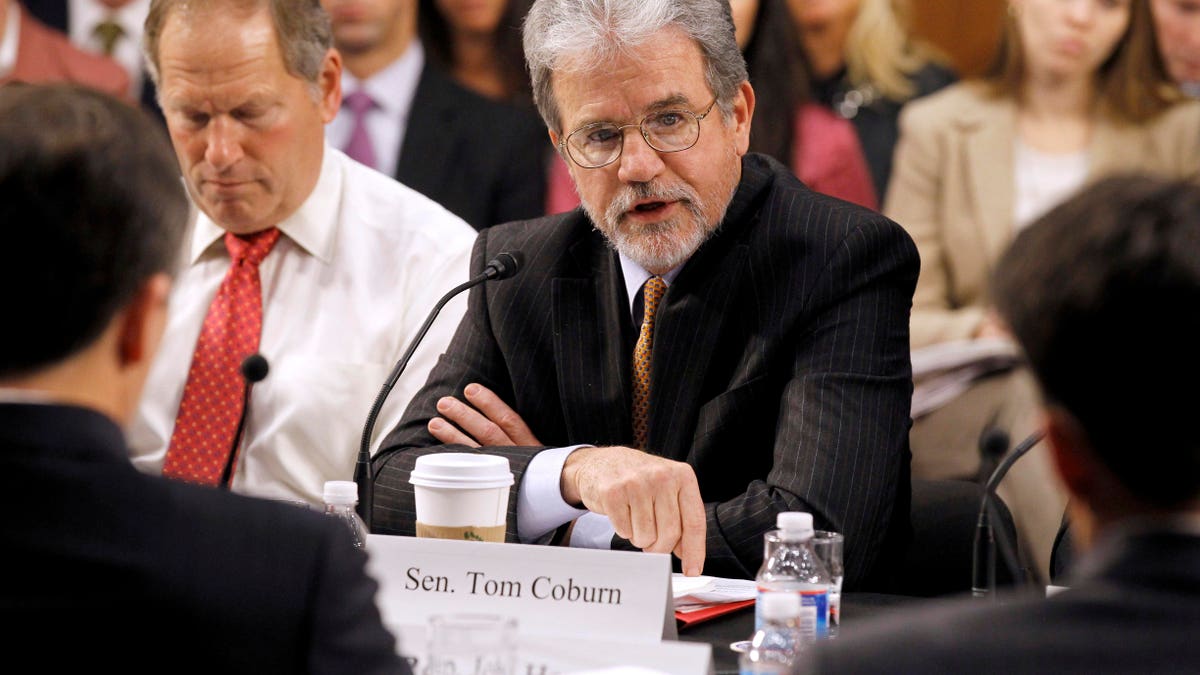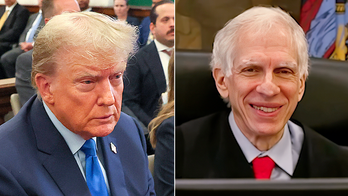
Dec. 1: Sen. Tom Coburn, R-Okla., speaks during a meeting of the commission on Capitol Hill. (AP)
Congress on Wednesday passed a bill to pay for the health care of first responders to the Sept. 11, 2001, terror attacks after the Senate reached a bipartisan agreement to slash the price tag.
The deal lowered the cost of the bill to $4.2 billion -- about $2 billion less than an earlier version. It will authorize a health benefits program for five years, while placing several restrictions on how the money is doled out.
The Senate and the House passed the package on Wednesday. Despite the loss of several members who have left town, the House still had enough lawmakers for a quorum, passing the bill in a 206-60 vote.
New York Democratic Sens. Kirsten Gillibrand and Chuck Schumer issued a statement calling the deal a "Christmas Miracle."
"This has been a long process, but we are now on the cusp of the victory these heroes deserve," they said.
The breakthrough ended of a bitter and tense debate over the bill, which has languished in Congress for months. Lawmakers were running out of time to act on the health package as they scrambled to push out their priorities before the end of the lame-duck session -- but the issue gained traction in recent days following the passage of other high-profile bills.
Democrats had escalated their attacks on those holding up the bill, with Senate Majority Leader Harry Reid's office accusing Republicans Wednesday of "running out the clock" and denying benefits to "9/11 heroes."
Some Republicans were uneasy about the scope of the bill, which would provide aid to survivors and responders who became sick after being exposed to toxins at the World Trade Center ruins.
Sen. Tom Coburn, R-Okla, earlier released a seven-page document on Tuesday outlining what his spokesman says are the senator's "concerns" with the bill. He complained that the bill provides "overgenerous funding" to victims by reopening a fund for victims that was originally intended to be temporary following a recent $815 million settlement that addressed gaps in compensation funding.
But Coburn released a statement Wednesday afternoon saying he was "pleased" with the proposed changes.
"Every American recognizes the heroism of the 9/11 first responders, but it is not compassionate to help one group while robbing future generations of opportunity. I'm pleased this agreement strikes a fair balance and improves the bill the majority attempted to rush through at the last minute," the senator said.
According to a GOP aide close to the negotiations, the new proposal would permanently close the "Victims Compensation Fund" after five years. The original bill kept it open through 2031.
The deal would also cap attorneys' fees at 10 percent of any award and provide safeguards to ensure beneficiaries cannot "double dip."
Coburn had been working with Wyoming Sen. Mike Enzi, ranking Republican member of the health committee, as well as Schumer and Gillibrand, on the new agreement.
New York lawmakers have been urging Congress to remain in session for the vote.
"Permitting members of Congress and senators to return home for Christmas is important. But passing the 9/11 health care bill must come first," Rep. Anthony Weiner, D-N.Y., said in a written statement before the Senate vote. "Senate procedure and the House calendar may be inconveniences for politicians, but they make for hollow excuses for the sick and dying first responders who await our action."
"As long as it takes, Congress cannot say its work is done until this bill passes," he said.
Fox News' Trish Turner, Chad Pergram and Steve Centanni contributed to this report.




